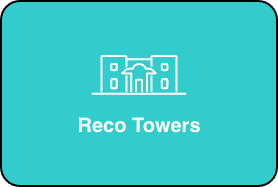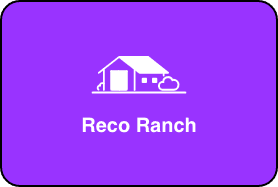How to Thrive in Sober Housing Programs in 2024


Embracing the Journey to Recovery
Understanding the Value of Sober Living Homes
Sober living homes serve as a fundamental cornerstone in the recovery process for individuals battling substance use disorders. These residential facilities provide more than just a place to stay, they offer a supportive and structured environment that fosters recovery and personal growth. At RECO Institute, the emphasis on creating a stable and conducive atmosphere for recovery highlights the importance of sober living benefits. By living in a community with peers who are on similar paths, residents are encouraged to share their experiences, challenges, and successes, thereby reinforcing their commitment to sobriety.
In these homes, residents learn to navigate the complexities of life post-rehabilitation, gaining valuable life skills such as accountability, responsibility, and the importance of maintaining a routine. This safe and supportive setting is crucial for individuals who are in the early stages of their recovery journey, providing a buffer against the pressures and triggers of the outside world. The RECO Institute’s sober living benefits extend beyond a place of residence, it is a community that nurtures recovery through peer support, professional guidance, and the development of healthy coping mechanisms.
The First Step in Recovery – Choosing the Right Sober Living Environment
Selecting the correct sober living environment is pivotal in the recovery journey. This decision can significantly influence an individual’s ability to maintain sobriety and achieve long-term recovery goals. When searching for a sober living home, it’s essential to consider several factors such as location, the level of structure provided, the types of amenities offered, and the overall philosophy of the program. Sober living in Delray Beach, for instance, offers the unique advantage of a supportive recovery community known for its commitment to helping individuals rebuild their lives.
Prospective residents should visit multiple homes, ask questions about the rules and expectations, and learn about the types of support and programs available. The goal is to find a place where one feels safe, supported, and motivated to continue their recovery journey. With its emphasis on creating a supportive environment that aligns with individual recovery goals, the RECO Institute stands out as a prime example of what to look for in a sober living residence. Ensuring the home aligns with one’s personal values and recovery needs is crucial for success.
Setting Realistic Recovery Goals
Goal setting is a critical component of recovery, providing direction and a sense of purpose. However, these goals must be realistic and attainable, to prevent feelings of frustration or failure. In a sober living environment, residents work closely with counselors and peers to identify short-term and long-term objectives that support their journey to sobriety. These goals often include personal achievements, such as completing a treatment program, attending a certain number of 12-step meetings each week, or securing employment, as well as emotional and psychological milestones, like improving family relationships or developing healthier coping strategies.
By setting and working toward these goals, residents of sober living homes begin to experience the rewards of their efforts, reinforcing their commitment to recovery. The structured support of a sober living program, such as that provided by the RECO Institute, is invaluable in this process. Goals provide measurable milestones that residents can look back on to see how far they’ve come, boosting confidence and motivation to continue progressing. In this environment, setting realistic goals becomes a collaborative process, ensuring that each individual has the support and resources they need to succeed.
Maximizing the Benefits of Sober Living Residences
Active Participation in House Meetings
Active participation in house meetings is vital for anyone seeking to thrive in sober living programs, such as those offered at RECO Institute in Delray Beach, Florida. These meetings are not just obligatory gatherings, they serve as a foundation for developing a sustainable sober lifestyle, offering a platform for residents to share experiences, address concerns, and collectively confront the challenges of recovery. Engaging with peers during these sessions fosters a sense of belonging and mutual understanding, which is critical in early recovery stages.
Moreover, house meetings enable residents to practice accountability and learn conflict-resolution skills in a supportive environment. By voicing one’s thoughts and listening to others, individuals enhance their communication skills, a crucial element for personal development and successful integration into society post-recovery. The structure and consistency of these meetings also help residents establish routines, contributing to the overall stability and predictability needed during this transitional period.
Building Support Systems Within Sober Living
In the journey of recovery, the significance of a strong support system cannot be overstated. Sober living environments, like those provided by the RECO Institute, are designed to cultivate this network of support among residents. One key aspect is the creation of peer support dynamics, which offer encouragement and understanding from individuals who are navigating similar challenges. This atmosphere of empathy and solidarity is instrumental in reinforcing one’s commitment to sobriety.
The staff at sober living homes also play a crucial role, providing guidance and professional oversight that complements the peer-based support system. By engaging with both peers and staff, residents can address their struggles more openly, access diverse perspectives, and discover effective coping strategies. Additionally, forging these relationships in the safe confines of a sober living residence lays the groundwork for lasting friendships that continue to offer support and encouragement long after moving on from the program.
Engaging in the Sober Living Community
Participation in the broader sober living community extends the benefits of individual recovery efforts. Activities such as group outings, volunteer work, and communal dining can deepen the connections among residents, offering a sense of family and belonging. These shared experiences not only enhance the overall quality of life but also reinforce the values and routines crucial for maintaining sobriety.
Moreover, engaging in the wider recovery community can provide additional layers of support and inspiration. For instance, joining local recovery events or speaking engagements can introduce residents to a broader spectrum of recovery narratives, enriching their perspective and commitment. This outward engagement serves as a powerful reminder of the collective strength available within the recovery community, fostering an environment where personal growth and healing are continuously nourished.
Utilizing Resources like the Alumni Program
Finally, leveraging the resources available through sober living programs, such as the RECO alumni program, can significantly enhance one’s recovery journey. These programs offer continued support and engagement opportunities for individuals who have transitioned out of the sober living residence, allowing them to remain connected to the community that played a role in their recovery. Alumni resources often include ongoing access to group meetings, social events, and mentorship opportunities, which can be invaluable for maintaining a sober lifestyle amidst the challenges of independent living.
Additionally, the alumni program enables former residents to give back by supporting those new to the sober living community, reinforcing the cycle of recovery and mutual aid. This sustained involvement enriches the individual’s recovery experience, providing a sense of purpose and belonging that extends well beyond the initial stages of sobriety. Through active participation and engagement with these resources, individuals can build a robust foundation for long-term recovery success, fully embodying the transformative potential of sober living residences.


Integrating Comprehensive Recovery Strategies
Leveraging Outpatient Programs with Sober Living
Integrating outpatient programs into sober living environments is a holistic approach that enhances the recovery journey. The dual support system, offering therapeutic interventions alongside a structured living space, creates a reinforcing network that addresses both the immediate and underlying issues related to substance use disorders. At RECO Institute, the combination of RECO Intensive addiction recovery strategies with the stabilizing environment of sober living homes offers a multi-faceted approach, crucial for individuals transitioning from more intensive treatment settings.
Outpatient programs provide continued care that allows individuals to apply the coping skills learned in therapy within the real-world setting of a sober living home. This practical application of therapeutic techniques within a supportive community encourages residents to navigate daily challenges, manage responsibilities, and engage socially without the use of substances. The continuity of care from outpatient services to sober living ensures that residents receive ongoing, tailored support, minimizing the risk of relapse and bolstering their commitment to recovery.
Furthermore, integrating outpatient programs facilitates a seamless transition in the recovery process, bridging the gap between clinical treatment and independent sober living. Residents benefit from professional counseling, group therapy, and medication management (if applicable), while also gaining independence, life skills, and peer support within the sober living environment. This comprehensive approach is foundational to developing a sustainable sober lifestyle, ensuring individuals are equipped with the tools they need for long-term recovery.
Developing Healthy Routines in Recovery
Establishing healthy daily routines is vital for individuals in recovery, especially within sober living environments. These routines offer a sense of structure and normalcy, crucial components for individuals emerging from the chaos of addiction. Engaging in regular activities like working, attending support meetings, exercising, and participating in household responsibilities encourages the development of discipline and self-care practices.
Healthy routines also involve proper nutrition, adequate sleep, and mindfulness activities, which collectively improve physical and mental health. At RECO Institute, the emphasis on developing these routines is part of the broader strategy for ensuring long-term recovery success. By fostering a balanced lifestyle, residents learn to prioritize their well-being, which is essential in reducing cravings, managing stress, and enhancing overall happiness.
Moreover, establishing routines in a sober living setting facilitates the creation of a supportive community. Shared activities, such as meal preparation or fitness sessions, provide opportunities for bonding and the reinforcement of social skills. This community aspect further motivates individuals to adhere to their routines, knowing they are not alone in their journey. As these healthy habits solidify, residents build the resilience needed to navigate life’s challenges without resorting to substance use.
The Role of 12-Step Meetings in Sober Living
The inclusion of 12-step meetings in sober living programs plays a critical role in reinforcing recovery principles and fostering a sense of community among residents. These meetings, whether they’re Alcoholics Anonymous (AA) or Narcotics Anonymous (NA), provide a structured approach to recovery that complements the support and stability offered by sober living environments. They emphasize accountability, peer support, and personal development, aligning with the overall goals of sober living.
Participation in 12-step meetings allows residents to connect with a broader recovery community, sharing experiences and supporting others on similar paths. This external network can be invaluable, offering insights and encouragement from those who have navigated their recovery journeys. Access to AA meetings support for sober living residents and Narcotics Anonymous meetings integration in recovery expands the reach of the sober living community, embedding residents within a global support network.
Furthermore, 12-step meetings instill a sense of discipline and regularity, essential components for maintaining sobriety. The meetings provide a reminder of the ongoing commitment required in recovery, the potential consequences of relapse, and the personal and collective strength found in shared experiences. For many, these meetings become a cornerstone of their recovery, offering hope, guidance, and a pathway to sustained sobriety within the structured environment of a sober living program.
Navigating Transitional Housing Challenges
Overcoming Obstacles in Sober Housing
Transitional sober housing presents a unique set of challenges for individuals striving for long-term recovery. While the structure and support of sober living homes are designed to aid in sobriety, residents may face obstacles that can test their resolve. Understanding and addressing these challenges is paramount in ensuring a positive and productive recovery journey. Key among these challenges, as outlined in Challenges in transitional sober housing, are adapting to communal living, adhering to house rules, and managing personal triggers in a shared space.
To effectively navigate these issues, residents must lean on the support systems provided by their sober living environment, including counselors, house managers, and peers. Utilizing open communication and seeking guidance when confronting hurdles help foster an atmosphere of shared growth and problem-solving. Moreover, engaging in regular house meetings and workshops can provide valuable strategies for overcoming common obstacles, reinforcing the community’s collective resilience.
Sustaining Sobriety During Transitional Periods
The transition to a sober lifestyle can be fraught with vulnerabilities, especially during the early stages of recovery. Sustaining sobriety requires a multifaceted approach that encompasses emotional, psychological, and practical support. One of the essential strategies is actively integrating outpatient programs in recovery housing, which offers a continued therapeutic connection and an extra layer of accountability as individuals navigate this crucial period.
Regular involvement in therapeutic activities, combined with the stable environment of sober living, significantly enhances the ability to maintain sobriety. It’s also beneficial to engage with the broader recovery community, participate in 12-step programs, and embrace the structured routines offered by the sober living home. These efforts, supported by the bedrock of a caring and understanding community, can dramatically improve the chances of long-term success in recovery.
Effective Conflict Resolution in a Supportive Environment
Conflict is a natural occurrence in any communal living situation, including sober living homes. What sets sober living environments apart is the emphasis on resolving these conflicts constructively and supportively. Effective conflict resolution is foundational in maintaining a harmonious and supportive atmosphere, crucial for fostering recovery. RECO Institute’s mission in recovery underscores the importance of cultivating positive relationships and communication skills as integral components of the recovery process.
To navigate conflicts effectively, residents are encouraged to employ empathy, active listening, and open dialogue. Sober living homes often provide mediation through house managers or counselors, facilitating a neutral ground for resolving disagreements. These situations are viewed not as hindrances but as opportunities to grow, learn, and strengthen communal bonds. By mastering the art of peaceful conflict resolution, individuals in recovery are better equipped to handle interpersonal challenges outside the sober living environment, further enhancing their journey toward long-term sobriety and personal development.
Committing to Long-Term Sobriety
Sober Living Commitment Strategies
Committing to a life of sobriety, especially within the context of sober living environments, necessitates a multi-faceted approach that extends beyond the initial stages of recovery. Strategies for solidifying this commitment involve a deep personal dedication to wellness, active engagement in the recovery community, and the utilization of available resources to support sobriety. One effective tactic is establishing a personal routine that incorporates self-care practices, regular attendance at support group meetings, and participation in sober living community events. This routine not only reinforces a sober lifestyle but also builds a network of support crucial for long-term sobriety.
Furthermore, residents are encouraged to set long-term goals that align with their sober living journey, ranging from career aspirations to personal development achievements. These goals provide a sense of direction and purpose, serving as motivation to maintain sobriety. Another vital strategy involves open communication with counselors, house managers, and peers about ongoing challenges and victories in the recovery process. Sharing these experiences fosters a shared commitment to sobriety within the supportive environment of the sober living home.
Achieving and Maintaining Sobriety in Transitional Housing
Transitional housing offers a crucial bridge between intensive treatment settings and independent living, serving as a supportive environment where residents can practice sobriety in real-world settings. Achieving and maintaining sobriety in this context requires residents to actively engage with both the structured programs and the informal support networks available within the sober living community. Participation in therapy sessions, skill-building workshops, and peer support impact on sober community success is essential for reinforcing the coping strategies needed to navigate life’s challenges without relapse.
Moreover, transitional housing programs like those at RECO Institute provide structured routines that mimic typical daily life but in a substance-free environment. This structure helps residents develop healthy habits and routines that are critical for sobriety outside the sober living setting. Integrating into the wider recovery community, including attending off-site 12-step or other support group meetings, also plays a vital role in maintaining sobriety by offering additional layers of accountability and support.
Residents are encouraged to take advantage of the resources and activities offered by the sober living program, such as job placement assistance, educational opportunities, and recreational activities. These resources not only aid in building a fulfilling sober life but also in mitigating the risk of boredom and isolation, which can be triggers for relapse. Sustaining sobriety in transitional housing is thus a multifaceted endeavor that involves both personal commitment and active participation in the broader recovery community.
Long-Term Recovery and Personal Growth
The journey toward long-term recovery is both challenging and rewarding, with personal growth playing a central role in sustaining sobriety. Engaging in a sober living program like the RECO Institute offers residents the opportunity to focus on self-improvement in a stable and supportive environment. This focus on personal growth involves exploring new hobbies, pursuing educational goals, and establishing healthy relationships, all of which contribute to a well-rounded and fulfilling life in recovery.
Critical to this process is the development of a strong sense of self-awareness and the ability to manage emotions healthily. Sober living programs provide a conducive environment for this type of development through therapy, peer discussions, and self-reflection activities. The teachable moments and personal challenges encountered along the way serve as catalysts for growth, enabling residents to gain insights into their behavior patterns and to make conscious choices that support their sobriety.
Central to long-term recovery is the realization that personal growth is an ongoing process. Residents are encouraged to continuously set new goals, whether related to personal development, professional ambitions, or sobriety milestones. Celebrating these achievements within the sober living community reinforces the positive outcomes of a sober lifestyle and motivates both the individual and their peers to remain committed to recovery. By embracing the journey of personal growth, individuals in sober living programs can build the foundation for a successful and sustained recovery, fully prepared to navigate the complexities of life with confidence and sobriety.


Leveraging Sober Living Amenities for Personal Development
Developing Life Skills in Sober Home Settings
Sober living homes, like those managed by RECO Institute, are not just about providing a safe space free from substances, they are also about preparing residents for a successful, independent life post-recovery. These environments are uniquely equipped to help individuals develop essential life skills that are often compromised during periods of substance use. Cooking, financial management, job hunting, and maintaining cleanliness are just a few examples of the skills residents can hone, all of which are pivotal for Developing a sustainable sober lifestyle.
The structured nature of these programs ensures that residents have daily tasks and obligations that mimic those they will face in the outside world. By managing their responsibilities within the house, such as chores or budgeting for communal expenses, individuals learn the importance of accountability and teamwork. The RECO Institute emphasizes creating real-life scenarios where residents can practice problem-solving and decision-making, further enhancing these essential life skills.
Fostering Peer Connections in Recovery
The journey to recovery is deeply personal, yet the communal experience of sober living provides a unique opportunity to forge deep, meaningful connections that can significantly bolster one’s progress. RECO Institute’s sober living program places a strong emphasis on fostering peer connections in sobriety, understanding that the support and understanding from others facing similar challenges can be incredibly empowering. Through group activities, shared responsibilities, and open dialogues, residents find a sense of camaraderie and belonging.
These connections often extend beyond the time spent in sober living, offering a vital network of support as individuals navigate the complexities of life post-recovery. The intentional design of sober living homes to include communal spaces and group activities facilitates these interactions, making peer support a cornerstone of the recovery process.
Enhancing the Sober Living Experience
RECO Institute knows that the path to recovery should involve more than just abstaining from substances, it should also include elements that enrich one’s life and bring joy. To this end, sober living homes often offer a range of amenities and activities designed to enhance the resident’s experience and promote personal growth. From yoga and meditation classes to workshops on nutrition and wellness, these offerings help residents discover new interests and passions that become integral parts of their sober life.
Moreover, embracing activities that foster physical health, creativity, and emotional well-being contributes to a holistic recovery process. By providing diverse opportunities for engagement, sober living homes ensure that residents have access to a variety of tools and experiences that support their journey to recovery. This comprehensive approach not only aids in the healing of past traumas and battles with addiction but also equips individuals with the resilience and skills needed for a fulfilling sober future.
Preparing for Success Beyond Sober Housing
The journey through recovery encompasses much more than the initial steps away from substance use, it’s a continual path toward self-improvement, resilience, and, ultimately, reintegrating into society with newfound strength. Sober housing provides a crucial foundation for this journey, but preparing for success beyond these supportive environments involves strategic planning, personal development, and leveraging the right resources. As we approach 2024, it’s essential to focus on how recovered individuals can transition smoothly from sober living settings to independent living, integrate confidently into wider society, and utilize networks like the RECO Institute for ongoing support.
Transitioning from Sober Housing to Independent Living
The shift from the structured environment of a sober living home to independent living is a significant one. Residents must adapt to less supervision and more personal freedom, which, while empowering, can also present new challenges. Successful transition strategies involve establishing a strong personal routine that includes continued engagement with support groups and therapy sessions to maintain the momentum of recovery.
Building a stable living environment is also crucial. This means finding accommodation that supports a sober lifestyle, whether through sober roommates or in a community known for its healthy, substance-free environment. Financial planning also plays a role in this transition. The skills learned in sober living, such as budgeting and financial responsibility, become even more critical when managing the costs of independent living.
Moreover, the importance of establishing a support network outside of sober living cannot be overstressed. Maintaining connections with mentors, counselors, and peers from sober living programs provides a safety net during challenging times.
Integrating into Society with Confidence and Sobriety
Reintegration into society marks a pivotal phase in the recovery journey. This process involves not just physical abstinence from substances but also a mental shift towards a constructive and engaged lifestyle. Volunteering, pursuing education or career goals, and participating in community activities can facilitate this integration, providing a sense of purpose and belonging.
Social integration is equally important, and sober living alumni might find it beneficial to connect with new circles that share their values and interests. This might include joining clubs, organizations, or groups that focus on hobbies, sports, or other interests. The key is to engage in positive social activities that reinforce sobriety and offer fulfilling experiences.
Similarly, maintaining a healthy lifestyle through nutrition, exercise, and mindfulness practices continues to play a fundamental role in this phase. These habits not only support physical and mental health but also bolster confidence and resilience.
Leveraging RECO Institute’s Networks for Ongoing Support
The RECO Institute offers comprehensive post-sober living support to help alumni thrive in their independent lives. Leveraging this network can significantly enhance the recovery journey, offering resources, support, and connections well beyond the walls of sober living homes.
One highlighted aspect is the alumni program, designed to keep former residents connected and engaged. Whether through social events, support group meetings, or mentorship opportunities, these initiatives provide a platform for continued growth and support. Alumni can share their successes and challenges, lending insight and encouragement to those following in their footsteps.
Furthermore, the RECO Institute’s professional network can aid in job placement, offering vocational advice and connections to employment opportunities that are conducive to a sober lifestyle. Education and training opportunities may also be available to those looking to advance in their careers or pivot to new fields.
Finally, the importance of insurance in covering the costs of ongoing therapy and outpatient services cannot be understated. Leveraging RECO Institute’s insurance solutions ensures that alumni have access to the care and support they need without the burden of financial strain. This security allows individuals in recovery to focus on their growth and the development of a fulfilling, substance-free life.
Transitioning from sober living to a fully independent lifestyle while maintaining sobriety is a complex process that requires careful planning, a robust support system, and continued personal development. Through strategic preparation, societal reintegration, and leveraging the vast networks of support available through institutions like the RECO Institute, individuals in recovery are well-equipped to embrace their future with confidence and resilience.
Seizing the Future with Confidence
The journey through sober living is not an endpoint but a beacon towards a fuller, more vibrant life post-recovery. As 2024 approaches, the tools, connections, and experiences gained from sober housing programs like the RECO Institute serve as a foundation for seizing the future with unwavering confidence.
Embracing Life’s Opportunities After Recovery
Transitioning from structured sober living into the broader scope of society’s daily rhythms offers recovered individuals a unique opportunity to redefine their lives. Sobriety unlocks the door to new career paths, enriched relationships, and engagement with hobbies and interests that may have been overshadowed by past substance use. This newfound freedom and clarity can be exhilarating, yet it’s crucial to navigate this transition with care and strategic planning.
To thrive in this next phase, leveraging the learnings from sober living environments about discipline, routine, and support networks becomes vital. The skills and self-awareness gained facilitate a smoother adjustment to independent living, ensuring that one’s sobriety is maintained as one explores the varied landscapes of life post-recovery. Activities such as continued education, volunteer work, or new vocational pursuits become not just achievable but foundational stones in constructing a fulfilling sober life.
Continuing the Journey of Self-Improvement
While achieving sobriety is a monumental step, the journey of self-improvement is ongoing. The principles and habits cultivated in sober living programs underscore the importance of continuous growth and personal development. Engaging in self-care practices, seeking mental health support in addiction recovery, and setting new personal and professional goals are essential steps in this relentless pursuit of betterment.
Delving deeper into personal interests or returning to abandoned passions can provide not only a sense of joy and fulfillment but also strengthen the resolve to maintain sobriety. Moreover, the journey of self-improvement often inspires others within the recovery community, creating a ripple effect of motivation and encouragement.
Staying Connected with the Recovery Community
The support network formed within sober living houses is a pivotal aspect of the recovery journey. As individuals transition beyond these environments, maintaining connections with the recovery community becomes an invaluable source of continued support and inspiration. Engaging in alumni programs, attending regular support group meetings, or even mentoring those new to recovery can enrich one’s sober journey while contributing positively to the lives of others.
Staying connected reinforces the sense of belonging and solidarity crucial for navigating life’s inevitable challenges. It serves as a reminder that while the path of recovery may be deeply personal, it does not have to be walked alone. This enduring connection to the recovery community not only aids in sustaining long-term sobriety but also in fostering personal growth and fulfilling relationships.
Frequently Asked Questions
Question: What makes RECO Institute’s sober living in Delray Beach stand out for someone looking to thrive in recovery in 2024?
Answer: RECO Institute’s sober living in Delray Beach is uniquely positioned to offer an unparalleled recovery experience, especially as we look towards 2024. With a focus on creating a supportive environment that enhances sober living success, the RECO Institute stands out by providing a stable environment conducive to personal growth and thriving in recovery. Our programs are designed to maximize the benefits of sober housing through comprehensive support services, including peer support, professional counseling, and active participation in house meetings. The blend of our highly structured environment with the freedom to engage in the community and work or study fosters a sustainable sober lifestyle. By choosing the RECO Institute, residents gain access to a recovery community that is deeply invested in achieving long-term sobriety and personal development.
Question: How does the RECO Institute ensure the development of essential life skills in its sober home settings?
Answer: At RECO Institute, we understand the significance of developing essential life skills as a cornerstone of a sustainable sober lifestyle. Our sober living programs are intricately designed to not only support recovery from substance use disorders but also to equip residents with vital life skills. Participants in our sober living homes receive hands-on training in areas like financial management, cooking, job hunting, and maintaining overall cleanliness. Through daily responsibilities and structured activities, individuals practice accountability, teamwork, and decision-making under the supportive guidance of our experienced house managers. Our objective is to prepare our residents for successful, independent living post-recovery, ensuring they have the tools necessary to navigate life’s challenges with confidence and sobriety.
Question: Can you explain how RECO Institute’s alumni program enhances the recovery journey for those who’ve transitioned out of sober living homes?
Answer: The RECO Institute alumni program is crucial in extending the supportive network essential for maintaining long-term sobriety beyond the confines of our sober living homes. This program offers a range of engagement opportunities, from social events to support group meetings, enabling former residents to stay connected with their recovery community. Alumni have the chance to share their experiences, triumphs, and challenges, fostering a continued sense of belonging and encouragement. Furthermore, the alumni network serves as a resource for mentoring opportunities, where those further along in their recovery journey can offer guidance and support to newcomers. This structured yet flexible support system is pivotal in helping individuals navigate the complexities of life post-recovery, reaffirming their commitment to a sober lifestyle and contributing to their ongoing personal growth and self-improvement.
Question: In the blog ‘How to Thrive in Sober Housing Programs in 2024,’ the role of 12-step meetings was emphasized. How does the RECO Institute integrate these meetings into its sober living programs?
Answer: In our blog ‘How to Thrive in Sober Housing Programs in 2024’, we highlighted the integral role of 12-step meetings in reinforcing the principles of recovery. At RECO Institute, we seamlessly integrate 12-step meetings into our sober living programs by encouraging and facilitating participation in both onsite and local community meetings. This approach allows our residents not only to connect with peers within the sober living residence but also to engage with the broader recovery community. The structure and discipline of 12-step programs complement our recovery support services, imbuing residents with a sense of accountability and a platform for shared experiences. By participating in these meetings, residents strengthen their commitment to sobriety while gaining valuable insights and support from those who have successfully navigated their recovery paths. This integration ensures a holistic recovery experience that addresses both the immediate and underlying issues related to substance use disorders.
Question: What strategies does the RECO Institute employ to help residents overcome challenges faced in transitional sober housing?
Answer: Overcoming the challenges of transitional sober housing is a critical aspect of recovery, and the RECO Institute employs a multifaceted strategy to support our residents through this phase. First, we foster a culture of open communication, enabling residents to share and discuss their struggles freely, which is crucial for problem-solving and personal growth. Regular house meetings and workshops offer practical strategies for managing common issues like adjusting to communal living, adhering to house rules, and coping with personal triggers in a shared space.
Our experienced house managers and counselors provide individualized support and guidance, drawing on professional oversight to address each resident’s unique needs. We also emphasize the importance of developing healthy routines and engaging with therapeutic activities as foundational steps in navigating transitional challenges effectively. By creating a nurturing and supportive environment, the RECO Institute ensures that residents have the necessary tools and community support to overcome obstacles on their journey to sustained sobriety and successful reintegration into society.















